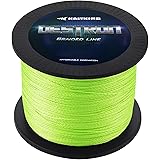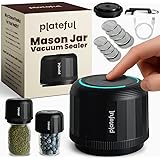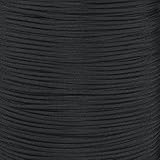Exploring Soy Sauce as a Cough Remedy: A Closer Look Beyond the Video
The video above presents an intriguing, albeit brief, idea: soy sauce as a potential cough medicine. This concept sparks curiosity, especially for those interested in natural remedies or improvised solutions for outdoor and survival situations. Let’s delve deeper into this intriguing notion.
The Curious Case of Soy Sauce for Cough Relief
Many people seek simple relief for bothersome coughs. Sometimes, conventional medicine is not readily available. The thought of using a common pantry item like soy sauce can seem appealing. It’s a quick, accessible option.
Historically, various cultures have used unexpected ingredients for ailments. This highlights a desire for practical, immediate solutions. The video prompts us to consider if this particular remedy holds any merit.
What’s in Soy Sauce? Understanding Its Components
Soy sauce is primarily made from fermented soybeans, wheat, water, and salt. Each component plays a role. Salt, in particular, is a well-known agent in cough and sore throat remedies. Saline solutions help clear mucus.
A saltwater gargle is a common recommendation. It can soothe an irritated throat. It helps reduce inflammation. Salt draws out moisture. This can thin mucus. This makes it easier to expel.
However, other components exist. Wheat and soybeans add complex flavors. Fermentation introduces unique compounds. These are not typically associated with medicinal properties for coughs. Some individuals might also react to gluten or soy. This is an important consideration.
Anecdotal vs. Scientific Evidence: Does Soy Sauce Really Work for Coughs?
There is very limited scientific research on soy sauce specifically for cough relief. Most support for this idea comes from anecdotal accounts. Personal experiences can vary greatly. What works for one person may not work for another.
We know salt offers some benefits. A 2010 study in the journal *Pediatrics* showed honey was more effective than dextromethorphan for nocturnal cough in children. This highlights the power of simple, natural ingredients. However, soy sauce is not honey. Its complex composition makes direct comparisons difficult.
A study published in the *Cochrane Library* reviewed common cold treatments. It found little evidence for many over-the-counter remedies. Saltwater gargles showed some efficacy for sore throats. This aligns with the salt content in soy sauce. The overall effect might be due to the salt alone. Other ingredients could even be counterproductive.
The placebo effect is also powerful. Simply believing a remedy will work can provide relief. This mental component should not be underestimated. It can account for a significant portion of perceived effectiveness. This does not mean a remedy is without value. It means the mechanism might be complex.
When is a Home Remedy a Good Idea? Considerations for Cough Relief
Home remedies are generally suitable for mild, self-limiting coughs. These often accompany the common cold. Colds are viral infections. They typically resolve on their own in 7-10 days. The average adult experiences 2-4 colds annually. Many of these include a cough.
For persistent or severe coughs, medical advice is crucial. Coughs lasting longer than three weeks warrant investigation. They could indicate underlying conditions. These include asthma, allergies, or infections. A high fever or difficulty breathing also requires immediate attention. Never delay professional medical care.
In a survival or camping context, resources are scarce. Improvised solutions might be all that’s available. Understanding basic first aid is paramount. Knowing the limits of home remedies is equally important. Prevention is always the best medicine. Stay hydrated. Stay warm. Avoid irritants.
Safer, Proven Natural Alternatives for Soothing a Cough
Instead of soy sauce, many well-established natural remedies exist. These have more supporting evidence. They often provide effective relief. Consider these options first:
- Honey: Honey coats the throat. It reduces irritation. Its antimicrobial properties are beneficial. A teaspoon before bed can help nocturnal coughs. Studies confirm its efficacy for children.
- Warm Liquids: Tea, broth, or warm water with lemon and honey. These soothe the throat. They help thin mucus. Staying hydrated is essential for recovery.
- Steam Inhalation: Breathing in warm, moist air helps. It loosens phlegm. A hot shower or humidifier works well. This can ease congestion.
- Ginger: Ginger has anti-inflammatory properties. It can relax airways. Ginger tea is a popular remedy. It may help soothe a cough.
- Thyme: Thyme contains compounds. These can relax the throat muscles. Thyme tea is used in some traditional medicine. It may offer cough relief.
- Saltwater Gargle: Simple salt water is effective. It helps clear bacteria. It reduces throat inflammation. This is a very accessible option.
Essential Cough Management Tips for Outdoor Adventures
When camping or in survival situations, preparedness is key. A cough can quickly become a significant problem. Always pack a basic first-aid kit. Include essential over-the-counter medications. Throat lozenges are helpful. Pain relievers can reduce discomfort. Antihistamines may dry up post-nasal drip.
Proper hydration is vital. Water intake supports overall health. It keeps mucus thin. Protect yourself from the elements. Cold air can worsen coughs. A scarf or bandana can offer protection. Maintain good hygiene. Wash hands frequently. This prevents germ spread.
Understanding your environment is critical. Avoid smoke from campfires if you have a sensitive cough. Be mindful of allergens. Pollen can trigger coughs. Pack appropriate gear for varying weather. These proactive steps reduce risks. They help manage cough symptoms effectively. The idea of soy sauce cough medicine is interesting. However, proven methods offer more reliable relief.











